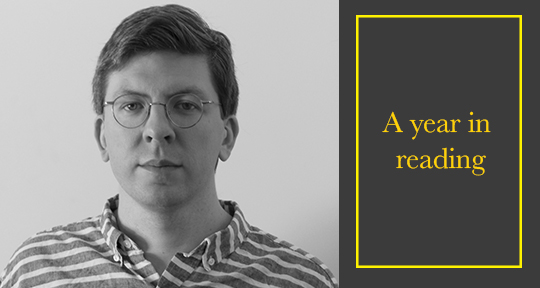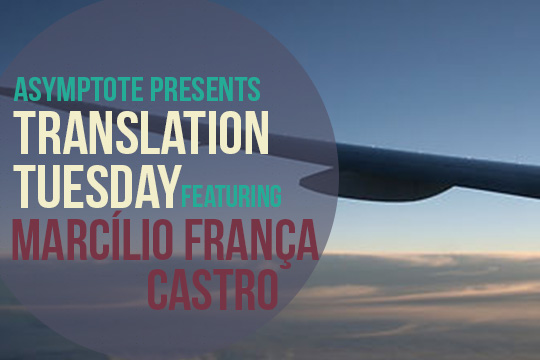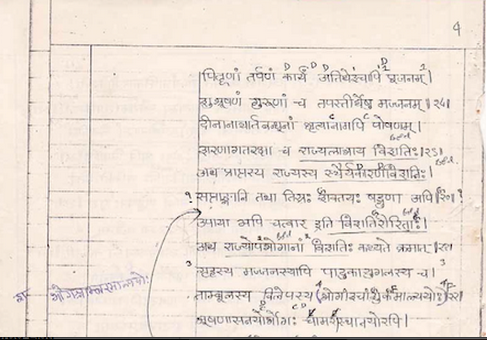Merry Christmas to those who celebrate it! This week, our staff continue to take turns looking back on 2017 through the lens of literature. Next up, Assistant Managing Editor Sam Carter.
One of the highlights of my reading year was the entirely unplanned—and unexpectedly delightful—move between translations and originals within a series not once but twice. Early in the summer, I had the chance to review the third volume of conversations between Jorge Luis Borges and Osvaldo Ferrari that Seagull Books brought out in July. Some years ago I had read in the original Spanish much of what constitutes the first two volumes in English translation, yet, for reasons I don’t quite recall, I never made it to these discussions that display a Borges who, despite being 85 years old at the time, remains a consummate conversationalist with a voracious intellectual appetite. He moves effortlessly from an unabashed Anglophilia—Joyce, Whitman, and Wilde are just some of the figures he enjoys reflecting on—to a more global concern. As he puts it in an Asymptote-appropriate formulation, “Why not accept all possible countries and cultures? Why not spread out to be cosmopolitan?”
It was with another Argentine author—cosmopolitan in his own right—that I ended up moving in the opposite direction: from translation to original. A few months before Restless Books was set to publish it in November, a friend handed me a galley of The Diaries of Emilio Renzi: Formative Years. Unwilling to wait to get my hands on a Spanish copy, I devoured it in the course of a few hours. (You can find an excerpt of this title, which was released in November, in our October 2017 issue.) There are two more volumes of these diaries, the last of which was released in Spanish in September, and I was thrilled to finish this masterful trilogy that traces the vicissitudes of the writing life with a unique intelligence and unmatched willingness to reflect on what different forms might offer. In Piglia’s view, for instance, a diary is a place where “you should ultimately write about the limits or the frontiers that make certain words or actions impossible.” He elegantly explores those limits in this record of how a great reader struggles to become a great writer by drafting versions of a novel that will only appear decades later, defining himself both with and against dominant influences, and spending what little money he has on books. The first volume is also, somewhat miraculously, both a great starting point for anyone who has yet to read any Piglia and a welcome addition to those who already familiar with much of his work.







Borges, the Quixote, and Two Street Markets
The author of "The Antiquarian" tackles Borges, contextual understanding… and the singular joys of book shopping
The first time I read “Pierre Menard, author of the Quixote,” I was seventeen and in my freshman year in college in Lima. As anyone who reads Borges for the first time, I was dazzled by the story of a fictional French writer who, at the beginning of the twentieth century, wants to write once again, without plagiarizing or recovering it from memory, Cervantes’s Don Quixote. The most memorable passage of the story comes when the narrator, a friend of Menard’s, and very likely a French fascist, analyzes one paragraph from the novel in two different ways. First, assuming that Cervantes is the author, he concludes that the paragraph is rhetorical and verbose, when written by a seventeenth-century Spaniard. Later, assuming the author is Pierre Menard, a contemporary right-wing surrealist poet, he finds that the same words are fantastically counterintuitive and herald a new form of understanding the world. Since the narrator is a fascist, one suspects that his interpretation is an overinterpretation, the grotesque imposition of ideas that were not there in the original text.
READ MORE…
Contributor:- Gustavo Faverón Patriau
; Writers: - Gustavo Faverón Patriau
, - Jorge Luis Borges
; Tags: - Antiquarian
, - borges
, - Cervantes
, - commentary
, - fascism
, - Grove Atlantic
, - Gustavo Faverón Patriau
, - Latin America
, - Peru
, - Pierre Menard
, - Quixote
, - The Library of Babel